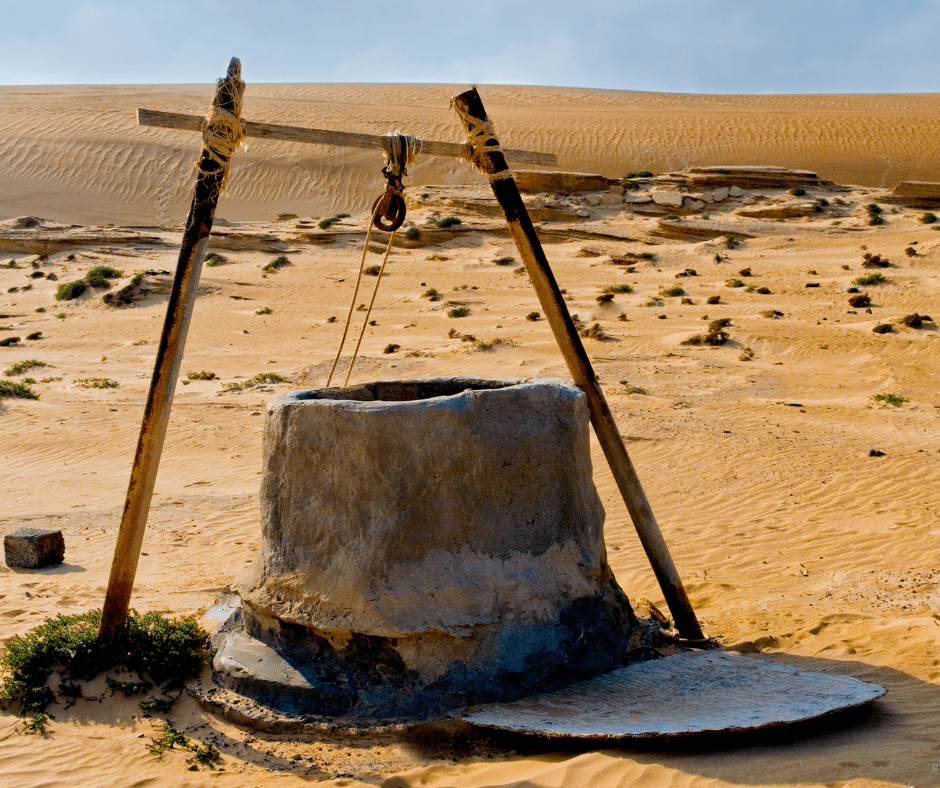
WOMAN AT THE WELL
There came a woman of Samaria to draw water.
Jesus said to her, “Give Me a drink.”
John 4:7
The ministry of Jesus did not fit the Jews’ idea of the coming Messiah. Jesus did not come and raise a physical army and take back the country of Israel from the Roman Empire. He came in weakness, from the obscure backwoods of Nazareth. We get a picture of the humanity of Jesus in John 4. He and his disciples have been walking all day. They stop in Samaria at a well. While his disciples go into town to get food, he sits by the well to rest. A woman comes to the well. Coming in the middle of the day seems to insinuate that she wanted to avoid the other women of the village. Jesus is thirsty and asks her for a drink. In the passage, we find no evidence that she gave one to Him. Instead, she challenges Him for asking her at all. And although Jesus had to have been thirsty after hours of walking on that dusty road, He does something strange: He tells her that she should be asking Him for a drink.
What followed was a conversation that hit her deeply in her heart. The Lord offered her living water. He told her that God desires true worshipers who worship in spirit and in truth. He knew about her life and her thirst. He held out eternal satisfaction. This conversation had a powerful impact on the woman’s life. She was so moved by what Jesus said that she left her water jar. This is fascinating. She came with that jar to that well day after day. It was a weariness to her. She needed it, was tied to it, it was her vessel for satisfying her thirst. But after this conversation with Jesus Christ, she left it behind her. She went back to her village to tell everyone about Him. She said, “Come, see a man who told me all the things that I have done; this is not the Christ, is it?” (v. 29). As a result of her testimony, many of the Samaritans in the village believed in Jesus. They said to the woman, “It is no longer because of what you said that we believe, for we have heard for ourselves and know that this One is indeed the Savior of the world” (v. 42).
Jesus showed that He did not stand on tradition. Tradition said that as a Jewish man, He was not to talk to a woman in public when He was by Himself. Jesus did not care about tradition, He cared about souls and in this account, we see Him reaching out to a soul in need. He did not care about her past. He did not care about her social status. He cared about Her and He gave her living water. She, an outcast of her town, in turn, witnessed to her people. The whole village believed in Jesus as the Messiah!
So, let us be encouraged by the story of the woman at the well. Let us remember that Jesus loves us no matter what we have done. He does not care that we have skeletons in our inner closet. He cares about our souls and freely offers us living water. We only need to reach out and accept His offer.
